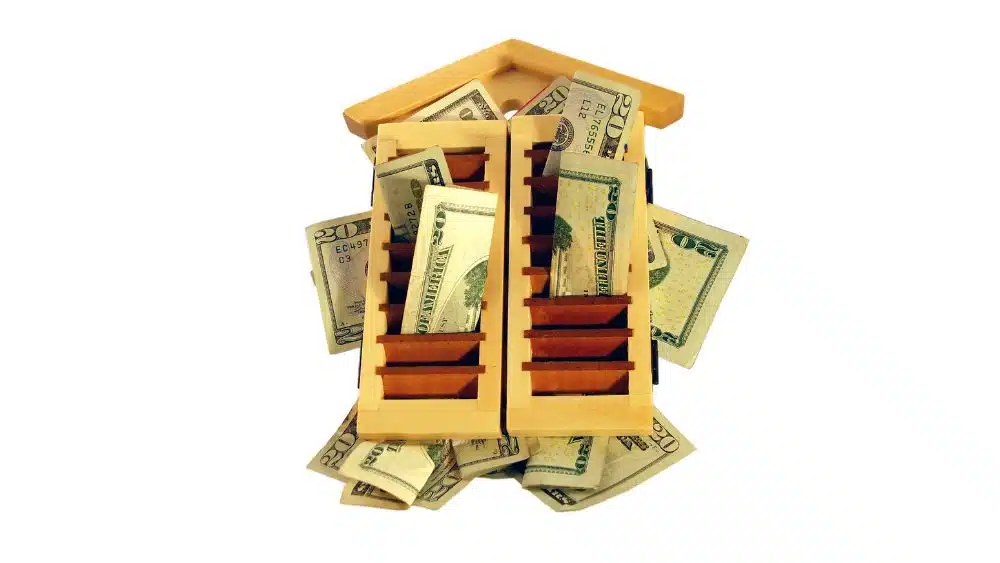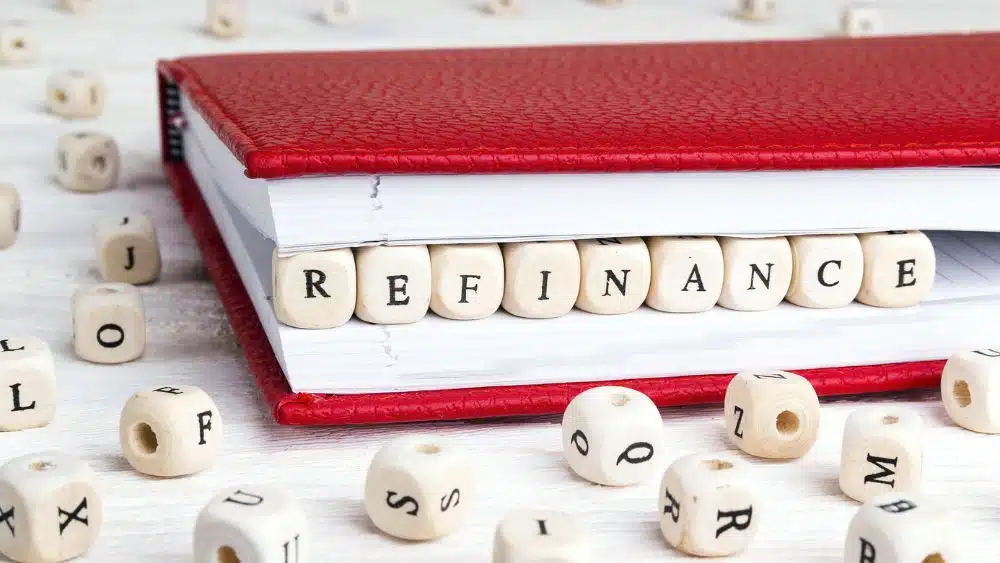10 important cost considerations when it comes to refinancing your mortgage

You can lower your interest rate, shorten or extend your loan terms, or dip into the home equity you’ve established – but is the cost of refinancing your mortgage worth it?
Refinancing your mortgage can be a savvy financial move for many homeowners, but it comes at a premium. Just like when you took out your original home loan, refinancing comes with a string of closing costs you’re on the hook for, which can account for as much as two percent to six percent of your loan principal, according to industry estimates. If you’re refinancing a mortgage of about $200,000, you could be spending between $4,000 to $10,000 in closing costs.
However, it’s worth noting refinancing may not come with such a hefty price tag: the national average for a single-family property refinancing in 2022 was $2,375. While this amount excludes recording and specialty taxes, it’s still less than one percent of the average refinance loan amount in the U.S., which is $304,909.
Where you live plays a huge role, too: States like Hawaii, New York, Florida and Texas had the highest closing costs, ranging from $3,370 up to $4,730.
So, what’s driving up the cost of your mortgage refinancing? Here’s a look at the most common expenses you must pay to refinance your mortgage loan.

10 Costs Involved in Refinancing Your Mortgage
When you refinance your mortgage, you’ll have to pay for a list of fees and costs to set up your new home loan. The amount will vary, depending on factors like your lender, your location, and even your individual financial situation.
If they look familiar, they’re more or less a pared down version of the closing costs you paid for when you secured your first home loan. When you refinance your mortgage, you’re going through the process once again, albeit with fewer expenses.
You don’t have to pay for these refinancing costs upfront all at once, but you will come across each of these expenses throughout the process. If you’re curious, ask your lender for an itemized list of fees to expect.
Loan Origination and Underwriting Fees
First up are loan origination fees, which your lender will charge you to set up and process your refinancing application, from preparing the paperwork to conducting the underwrite. Expect to spend about 0.5 percent on this step.
Application Fee
Alongside the underwrite and loan origination costs are is the application fee just to apply for the loan, whether you’re approved or not. This is another $75 to $300 to submit.
Credit Report
Whenever you apply for any type of credit, count on your lender checking your credit history to make sure you’re a responsible borrower. They’ll pull your credit report from the various credit bureaus, such as Equifax, Transunion and Experian, but you’ll foot the cost for these documents. If more than one borrower is on the loan application, double this cost.
Recording Fee
This cost varies depending on where you are in the country. Recording fees and taxes are charged at a city or county level to document your mortgage – and refinancing at a local government level. In some cases, it’s a basic tax charged according to how much mortgage debt you’re carrying.
Property Appraisal
That’s right, your property will undergo scrutiny just like when you applied for a mortgage to buy your home. Before your lender will agree to refinance your mortgage, they must send a third-party property appraiser to your home to make sure it’s priced at the right value.
This is a mandatory step – even with refinancing – because if you default on your home loan, your lender needs to know they can recoup their costs and cover the outstanding balance by selling your property.
During the property appraisal, they’ll evaluate your home’s size and condition, and compare it to homes priced similarly in the neighborhood to figure out its fair market value.
You’re responsible for the bill, usually in the hundreds.
Surveying Fee
Another step your lender may insist on is a property survey to define property lines and confirm your property’s boundaries. A surveyor will come to your home, scope out the land, draw shared fences and identify any peculiar boundaries.
This step will set you back another $300 or so, if it’s required.
Title Search
In doing their due diligence, your lender will also confirm that you’re the rightful owner of the property and that you own it free and clear. To do this, you’ll need to pay for a title search, which scours public records like deeds and court documents to ensure the land you’re buying is free of ownership disputes, unpaid taxes, judgments, or outstanding lawsuits.
Title Insurance
Once the title search is complete, your lender will expect you to purchase two title insurance policies – one for you, the owner, and one for them, the lender.
These policies stay in effect until you sell your property and they’ll protect both parties in case of “defects in title,” and cover all court costs and related fees if something was missed in the title search and claims are made.
Attorney Fees
When you’re negotiating a refinancing contract, your best bet is to have an attorney on your side to help you with closing on the new loan.
Your attorney will help you navigate the process from preparing your mortgage documents, certifying the deed and checking over your title insurance policies. You should hire a lawyer if your refinancing is a complicated one, too.
Legal fees will vary, depending on where you live in the country and the complexity of your refinancing.
Prepayment Penalties
If you have a prepayment penalty on your existing mortgage, you may need to pay a fee to refinance your loan. This fee can be pretty expensive, so it’s worth checking on your existing mortgage terms before deciding to refinance.

How to Lower Your Refinancing Costs
While refinancing costs can add up to a hefty sum, the decision may save you cash in the long run by securing a lower interest rate. You can also save money on your refinancing costs through a handful of ways, too. They include:
Improving Your Credit Score
Hands down, improving your credit score is the best way you can reduce your overall refinancing costs. By getting your credit score and personal finances in great shape, you’ll show lenders you’re a low-risk borrower, unlocking lower interest rates for you.
A competitive interest rate will give you the biggest cost-savings on your mortgage over the lifetime of your loan.
This means it’s worth checking your credit score ahead of time, making sure you’re paying your bills before their due dates in the months before applying for a refinancing, and paying down your credit card debt as much as you can. Your debt-to-income ratio matters.
Comparison Shop
Whether you’re shopping for a lender, title company or attorney, do some work and compare professionals to see which offer better rates for their services.
With lenders, ask for their current interest rates on offer and scour their websites to see the full range of options available to you. With this research in hand, choose the one that’s most reputable, with great rates too.
Negotiate Your Closing Cost Fees
When you select a lender, they’ll provide you with a “Closing Disclosure” form that outlines all the standardized fees and expenses they’re insisting you pay. You could try your hand at negotiation, asking your lender to omit certain expenses from the final bill. Start with the low hanging fruit that they can waive, such as your application fee or the credit check.
If your first mortgage was just recently brokered, you may even make the case for forgoing the property survey or title search.
This can work, especially if you’re a long-time customer with a history of making your payments on time without any hiccups.
What About “No-Closing-Cost” Refinancing?
If you can’t come up with the cash for closing on your renegotiated loan, your lender may offer you a no-closing-costs refinancing.
With these kinds of mortgages, your lender will agree to pay for part or all of your closing costs, but at a price: while you won’t have to pay for these expenses upfront, your lender will either charge you a higher interest rate on your new mortgage, or they’ll roll the entire list of fees into your home loan, creating an even larger balance to pay off.
Be careful because with either option, you’re paying more over the lifetime of your loan.
How Can You Calculate the Total Costs of Refinancing?
If you’re trying to determine if refinancing is worthwhile, you’ll need to do some number-crunching to compare the expense with the potential savings. If you’re trying to calculate your mortgage, follow these steps to guide you along the decision-making process:
- Write down your current interest rate and monthly payment.
- Find the current interest rates and fees that are on offer to you by lenders in your area that have pre-approved you for refinancing.
- Use a mortgage refinancing calculator to estimate your new monthly payment and how much you could save over the life of your new loan.
- Estimate the total costs of refinancing, including the list of expenses above. If you have prepayment penalties, take note of these because they will drive up this cost.
- Compare the potential savings you could garner to the total costs of refinancing to see if it’s a good financial move for you. You could learn, for example, that your total closing costs match the 2022 average of just $2,375, while you can secure a much lower interest rate, meaning the refinancing is your better bet.
Bottom line
While refinancing can be an expensive endeavor, under the right circumstances, it’s a move that could save you a lot of money in the long term, especially if you’re a homeowner that can secure a lower interest rate and better terms.
Take stock of the expenses above, and check on whether lenders will give you a better deal on your home loan before deciding to proceed.

Carmen Chai is an award-winning Canadian journalist who has lived and reported from major cities such as Vancouver, Toronto, London and Paris. For NewHomeSource, Carmen covers a variety of topics, including insurance, mortgages, and more.
 Reverse Mortgages: Pros and Cons Every Senior Should Be Aware Of
Reverse Mortgages: Pros and Cons Every Senior Should Be Aware Of